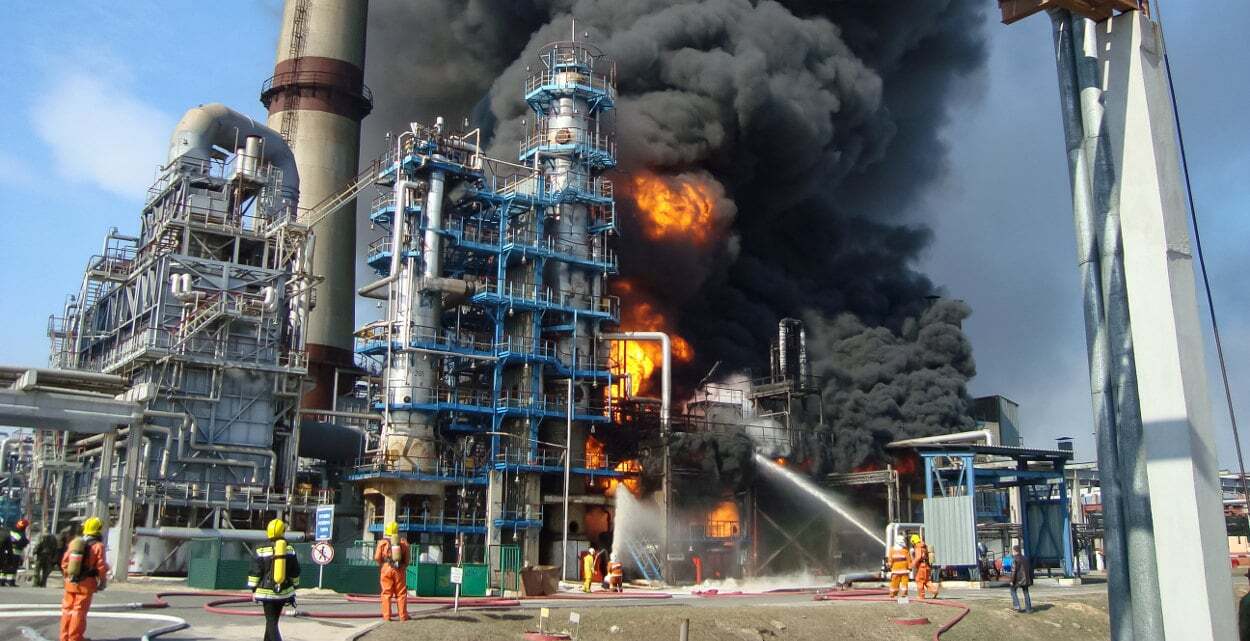When unfortunate accidents occur in refineries, it's crucial to seek the assistance of specialized Houston refinery accident lawyers. Texas, especially the Houston area, is renowned for its thriving oil and gas industry, employing numerous workers. However, this industry comes with risks. The expectation is that companies adhere to stringent safety standards for the well-being of their workforce. Regrettably, some entities prioritize financial gains over ensuring a secure working environment.
If you find yourself dealing with injuries or the loss of a loved one due to a refinery accident or plant explosion, don't hesitate to connect with the adept Houston refinery injury attorneys at Hilda Sibrian®. With a deep commitment to your well-being, our Houston refinery injury attorneys are prepared to delve into all aspects contributing to your accident. Our goal is to seek just compensation from all parties involved. Take the first step towards justice by contacting us now for a comprehensive and complimentary review of your case.
When delving into the industrial history of Texas, some of the most notable explosions and refinery accidents stand out as poignant reminders of the inherent risks in the state's thriving industrial sector. Texas, renowned for its robust oil and gas industry, has been witness to several significant events that have reverberated through time.
Among the most notable are:
Multiple explosions occurred at the Phillips 66 plastics factory in Pasadena. The first explosion registered 3.5 on the Richter scale. Over 310 people were injured, and 23 workers lost their lives in the explosions.
An explosion took place in Texas City after refinery pipes wore out, leading to gas leakage. A hydrocarbon vapor cloud ignited, resulting in an explosion that injured 180 people and claimed the lives of 15 others.
A fire broke out at ExxonMobil facilities in Baytown. Four individuals were injured in the incident. In a separate incident, another fire occurred, leaving 40 people injured. An underlying explosion was responsible for that fire.
At least 20 people were injured in a fire and explosion at the Pasadena Kuraray America facilities after a highly flammable gas leaked from the plant's production system.
Following a pressurized cap blowing a line containing acetic acid, a hazardous chemical leak occurred. Two workers lost their lives, and thirty others were injured.
Refinery accidents can have devastating consequences, ranging from minor injuries to severe, catastrophic outcomes, negligence-related deaths, or even environmental damage. They can also result in significant economic losses for all involved parties, their families, and the companies. While some accidents may be the result of conditions beyond human control, many can be attributed to negligence and error by one or more individuals. Here, we list some details about common causes that lead to refinery accidents.
It is essential to emphasize that these causes are not exhaustive, and other refinery-specific factors can also contribute to accidents. Refinery operators and their employers have a responsibility to prioritize safety, implement robust safety protocols, provide adequate training, and ensure that rules are followed to mitigate the risks associated with refinery operations.
Industrial accidents in the oil and gas sector can have severe consequences, including explosions, fires, falls, and exposure to toxic substances. Here, we will explain the most common types of industrial accidents:
Employees in the oil and gas industry need to prioritize safety by implementing strict protocols, providing comprehensive training, ensuring proper equipment maintenance, and reinforcing adherence to safety regulations. Regular inspections, hazard assessments, and the appropriate use of safety measures can help mitigate the risks associated with these common types of industrial accidents.
Plants and refineries have the potential to cause a range of severe and even catastrophic injuries. Here, we describe some of the most common types of injuries that can occur in these accidents:
These injuries can vary in severity, and victims may experience a combination of several of them. Seeking immediate medical attention after a plant or refinery accident is crucial. Additionally, consulting with an experienced oil refinery accident lawyer in Houston from Hilda Sibrian® can help protect your rights and pursue appropriate compensation for your injuries, medical expenses, pain and suffering, and other related damages.

When it comes to plant and refinery accidents, determining liability is a crucial aspect of securing a successful claim. Your Houston oil and gas refinery injury lawyer will carefully examine the circumstances surrounding the accident to identify the parties responsible for your injuries. Here, we explain some of the potential parties that may be liable for a refinery accident, fire, or explosion.
Liability in plant and refinery accidents may involve multiple parties. Your Houston industrial accident attorney will thoroughly investigate the circumstances to determine the individuals or entities responsible for your injuries. By establishing liability, your refinery accident lawyer can build a strong case to seek compensation for the damages you have suffered, including medical expenses, lost income, pain and suffering, and more.
The time limit, or statute of limitations, for refinery accident claims can vary depending on the type of claim and jurisdiction in the following ways:
It is essential to note that statutes of limitations can vary in each jurisdiction and specific case circumstances. Therefore, seeking legal consultation from one of our experienced refinery accident lawyers is crucial to understanding the precise timing of deadlines that apply to your situation. Failing to file a claim within the time limits may result in the loss of your rights to obtain compensation.
Refinery accidents have serious consequences, resulting in significant injuries or even deaths. In these cases, victims and their families have the right to seek compensation to cope with their grieving processes without worrying about finances. When filing a personal injury or wrongful death claim in refinery accidents, there are various types of compensation that can be obtained. For example:
If a loved one has lost their life in a tragic refinery accident, compensation for wrongful death can include:
By contacting our Hilda Sibrian® Houston refinery explosion legal experts, we can provide detailed guidance on the compensation you are entitled to receive. Seeking compensation can help alleviate the financial burden caused by the negligent parties involved in the accident and provide a measure of justice for the harm you have suffered.

After a plant or refinery accident occurs, and the immediate danger is neutralized, the following steps are typically taken:
To ensure that your rights and interests are protected, it is essential to have a dedicated Houston industrial accident attorney like Hilda Sibrian®, who can:
Once the causes have been determined, our Houston refinery accident attorneys proceed with the following actions:
At Hilda Sibrian®, we prioritize your well-being and fight for justice in the following ways:
Your journey towards justice begins with a simple step – reach out to Hilda Sibrian® today for a free and detailed evaluation of your case. Let our experienced team be your trusted legal ally during this challenging time.